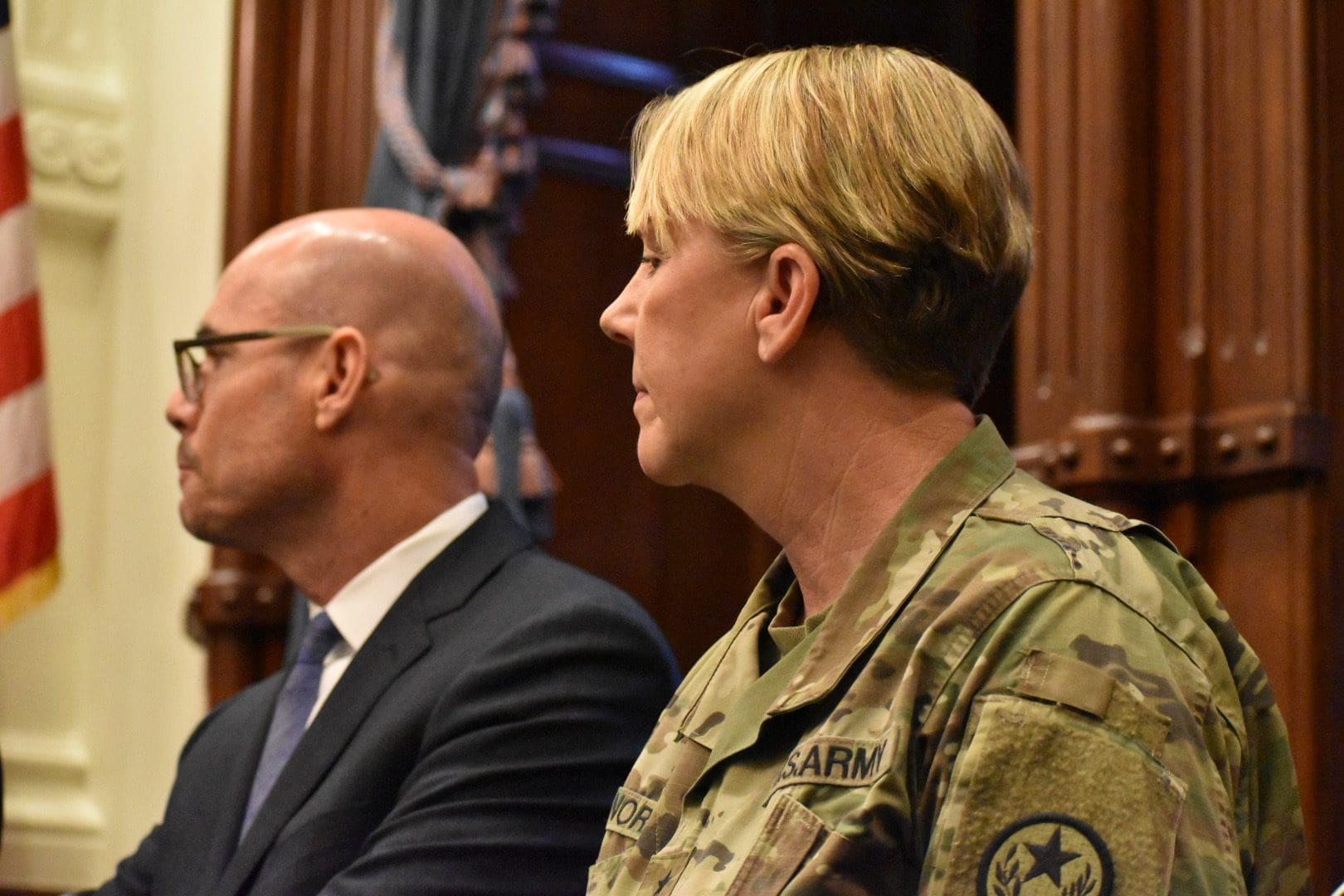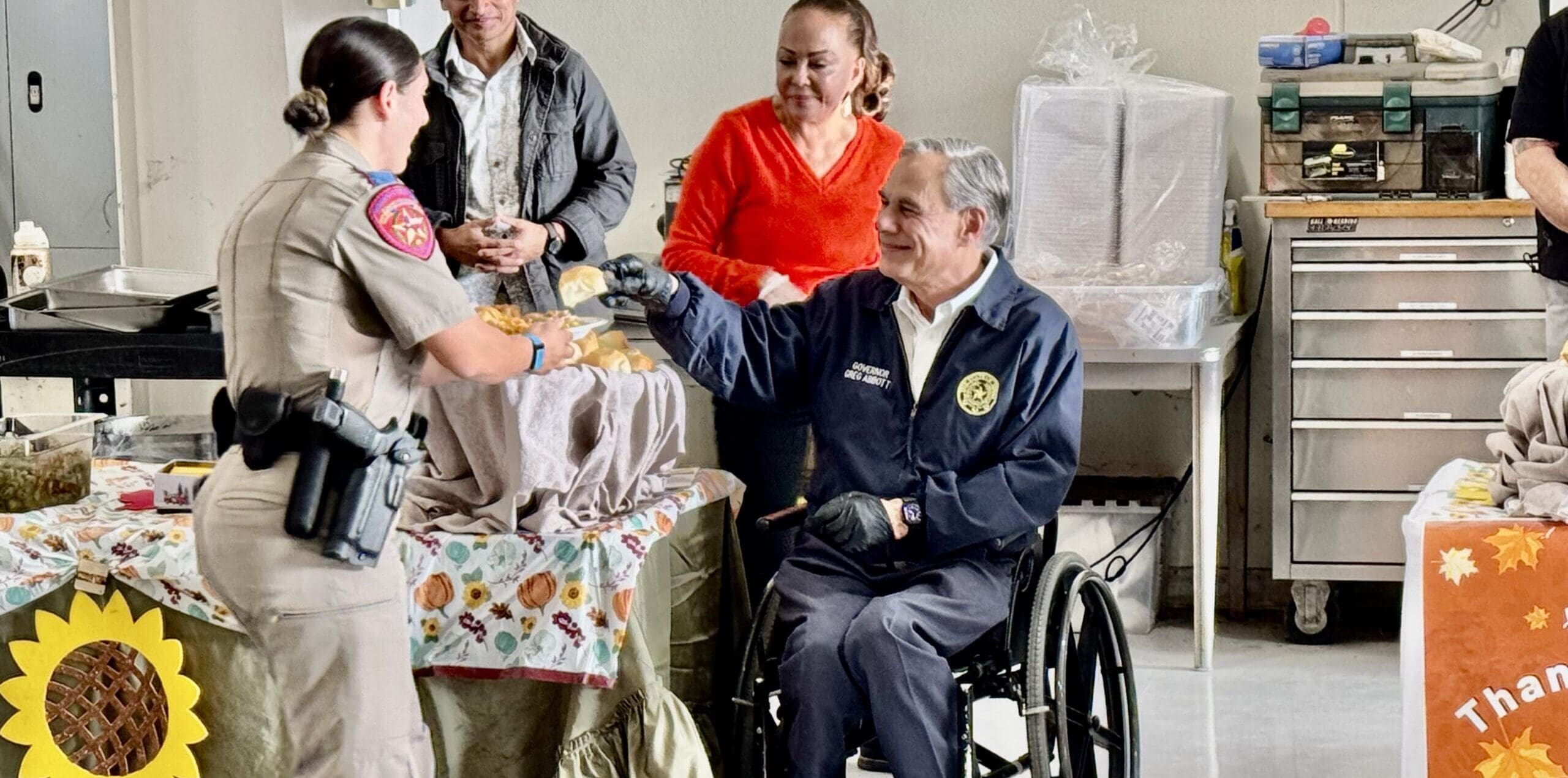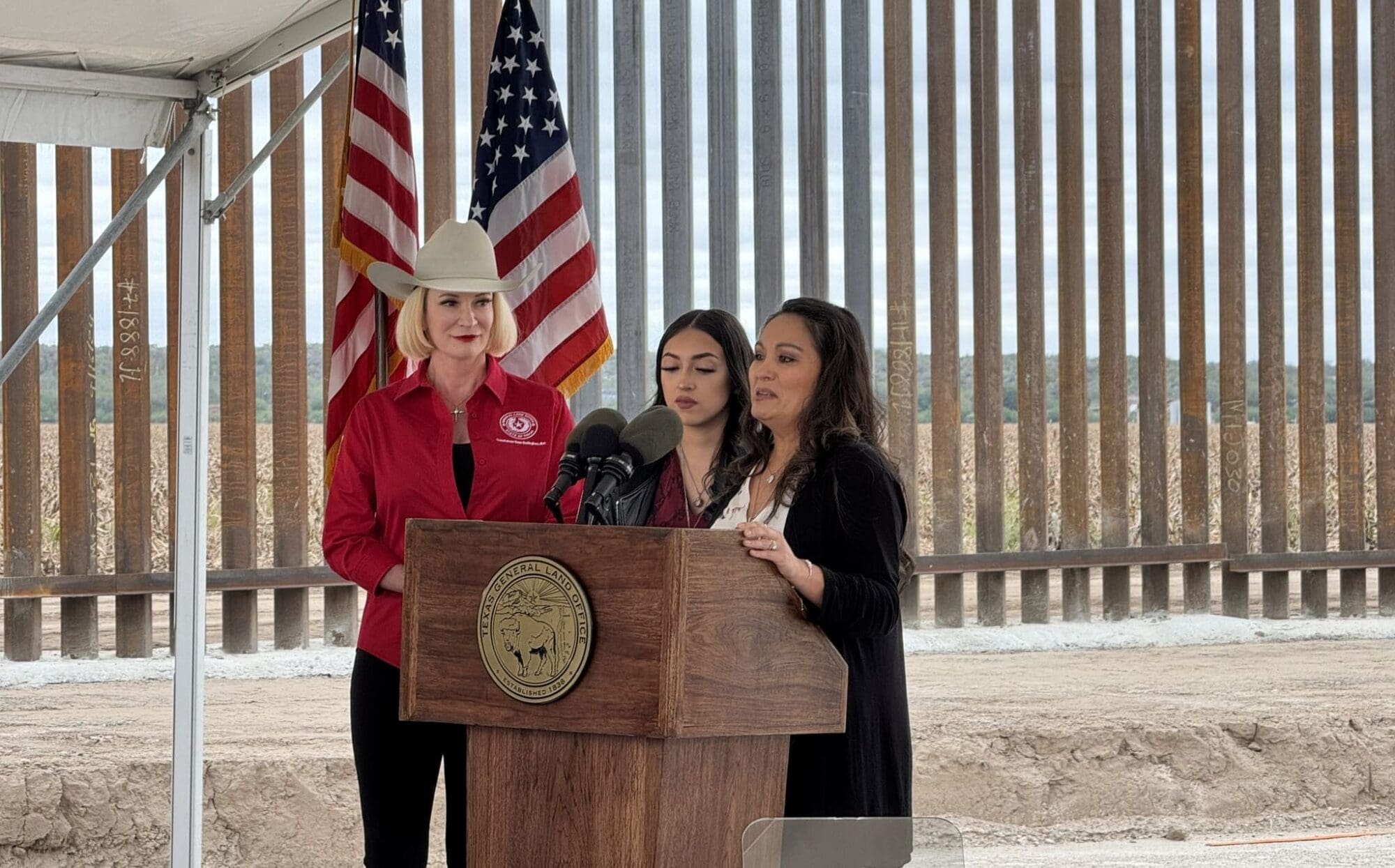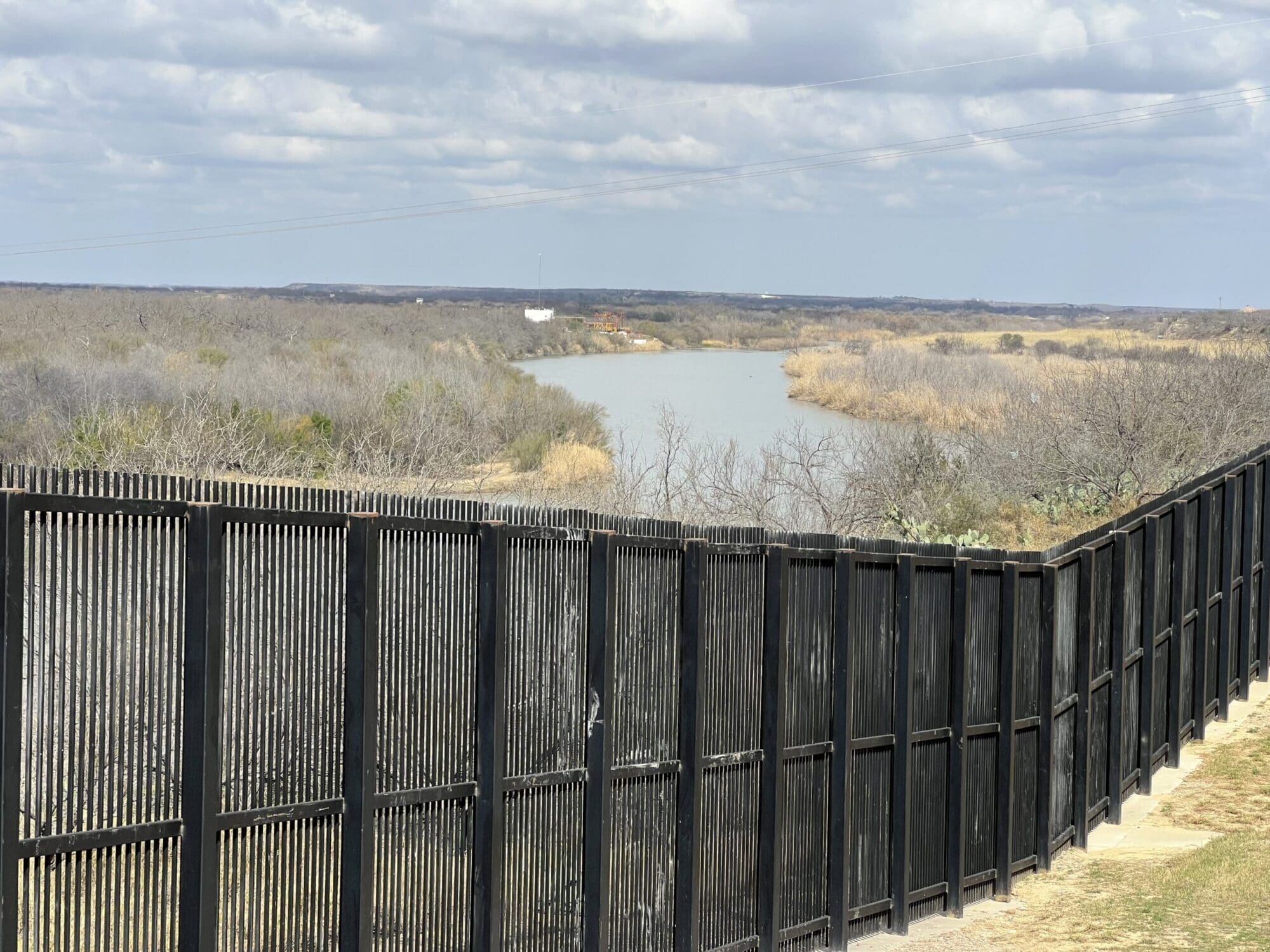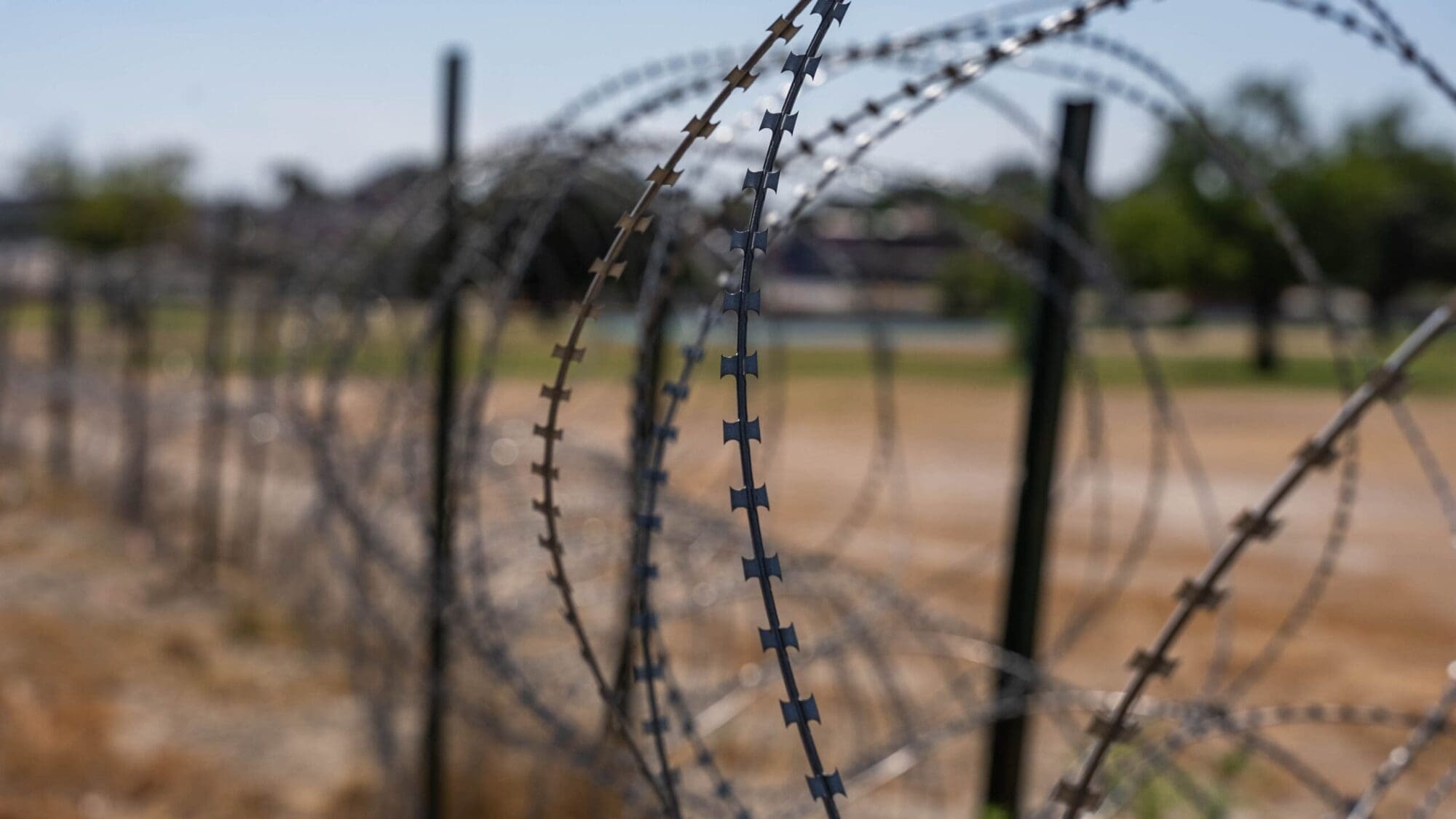Documentation obtained by Texas Scorecard shows problems—similar to the problems that surfaced during Operation Lone Star—were identified in Texas’ military during the 2017 Hurricane Harvey relief operation. Instead of those problems being fixed, they appear to have metastasized since Gov. Greg Abbott’s appointed military commander took over in 2019.
On December 3, 2018, Abbott appointed Maj. Gen. Tracy Norris to replace retiring Maj. Gen. John F. Nichols as the Texas adjutant general (TAG), the state’s top military commander. Nichols had been appointed during the tenure of former Gov. Rick Perry in 2011, and Perry reappointed him in 2014.
“General Norris exemplifies the values of service and sacrifice, and her record is nothing short of impeccable,” Abbott stated. “Under her leadership, the Texas Military Department will continue its strong legacy of service to the Lone Star State.”
Not all agree with Abbott’s 2018 statement.
“She’s appointed some incompetent people who are her friends, and not necessarily great military leaders, to hold very important positions there inside the [Texas Military Department],” retired Sgt. Maj. Jason Featherston said of Norris. “If you give her any opposition, she will find a reason to get rid of you. She doesn’t value senior enlisted advice.”
Since her appointment, the Texas Military Department (TMD) has become a scandal-plagued governing body, drawing national attention due to soldiers’ paycheck hardships; suicides; concerns about sexual assault; and punishment through physical exertion, a practice called ”smoking soldiers.” These issues came to light after Abbott launched Operation Lone Star (OLS) last March.
Hurricane Harvey
In a late January press release, TMD management attempted to explain away OLS’ problems in part by attributing them to how quickly the operation was deployed. “Some have attempted to compare our current disaster response effort to enduring federal overseas missions, which allow more time for planning and preparation,” TMD’s press release stated. They also claimed to have “rapidly surged from 500 personnel to more than 10,000 in a matter of months.”
A more apt comparison would be TMD’s response to 2017’s Hurricane Harvey under then-TAG Maj. Gen. Nichols.
During that campaign, TMD went from near zero troops on August 19 to more than 17,000 boots on the ground before the end of the month. This is according to the slides of an “After Action Report” TMD did after their response to Harvey, which was shared with Texas Scorecard.

TMD’s January attempt at spin is further undermined by the fact that they haven’t actually deployed 10,000 Texas National Guard troops to the border. A recent report stated there is only an “operational force” of 6,500.
Approximately this same number was previously told to Texas Scorecard on January 10 by Featherston, a former senior enlisted advisor to TMD. “There’s only 6,700 [TNG troops] on the border,” he said. “[TMD will] tell you that the remaining number is supporting the border mission, but not on the border, which [is] a half-truth there.”
TMD’s spin on “rapid deployment” isn’t the only argument deflated in the Harvey slides, which contain TMD’s review of the operation to identify its strengths and deficiencies.
Contrary to OLS, the Harvey mission allowed for “little to no time for deliberate planning,” yet an effective “informal method” was developed to get things done. The Harvey After Action Report encouraged this method be continued.

While sharing several of OLS’ problems, including pay and supply allocation, the Harvey mission also represents issues that can be anticipated from a rapid deployment.
Pay Issues
According to TMD’s After Action Report, the Harvey relief operation came with pay issues similar to those encountered in OLS—specifically, the management of data. However, these issues were reportedly dealt with quickly and did not rise to the same level seen now in OLS.

PEMS stands for Personnel Emergency Management System. It is TMD’s attendance recording system and a crucial part of the complex operation that gets Texas soldiers paid. Internal Texas comptroller communications from last October mentioned a functionality of TMD’s PEMS “may not be working as originally designed,” which made it necessary to submit entries manually during OLS.
Media Relations
When it comes to maintaining mission support from the public, the Harvey report mentioned openness with the media proved critical and recommended TMD sustain media access to the troops and missions.

Under Norris, this is decidedly not the stance TMD has taken when it comes to OLS. Norris has urged soldiers not to talk to the press, and it appears valuable energy is being spent to stop leaks rather than fixing the problems themselves.
Supply and Infrastructure
Like OLS, the Harvey relief operation was also plagued with supply allocation and infrastructure issues.
As previously reported by Texas Scorecard, a recording of the 36th Infantry Division last month showed Texas soldiers bringing up an issue about not being properly equipped. Another expressed concern about how the execution of OLS is affecting TMD’s ability to respond to Defense Support of Civil Authorities (DSCA) missions.
The U.S. Dept. of Defense defines DSCA as “support provided by U.S. Federal military forces … and National Guard forces (when the Secretary of Defense, in coordination with the Governors of the affected States, elects and requests to use those forces in Title 32, U.S.C., status) in response to requests for assistance from civil authorities for domestic emergencies, law enforcement support, and other domestic activities, or from qualifying entities for special event.”
The concern voiced during the 36th Infantry Division’s discussion raises questions of whether the objectives put forth in the 2017 Harvey report were fully executed after Norris replaced Nichols.
TMD DSCA response plan is improved, communicated, and understood.
TMD is better manned, equipped, trained and postured for DSCA.
Nichols vs. Norris
One of the purposes of the Harvey report, shown in the slides, is to “maintain lessons learned for future events.”
Perry-appointed Maj. Gen. Nichols retired as the Texas adjutant general on December 31, 2018, and Abbott appointed Maj. Gen. Norris as his replacement.
All the issues that have surfaced during OLS raise questions about how Norris implemented and maintained recommendations made during Nichols’ tenure.
“You don’t go to Maj. Gen. Norris and say, ‘Hey, ma’am, this ain’t working. We need to slow down on the number of troops we’re gonna put on the border so we can get pay and these other issues under control,’” said Featherston.
As previously reported by Texas Scorecard, internal Texas comptroller communications from October discussed bureaucratic turnover and inexperience at TMD contributing to the problem of not paying Texas soldiers on time.
While broad swaths of the economy see turnover in the workforce, Featherston pointed to Norris as the cause of TMD’s turnover problem.
“There has been, over the last year or so, a lot of people [leaving] the Texas Military Department,” Featherston told Texas Scorecard. “Different people will give you … different reasons, but they’re all around the same sentiment: that Tracy Norris is a toxic leader.”
We asked Featherston if Norris’ predecessor, Nichols, was better or worse than Norris. “He was amazing,” Featherston replied. “He would have told [Gov. Abbott], ‘Let’s plan this and then execute [OLS].”
Norris has found herself in controversy before.
Last year, Andy Hopper, a member of the Texas State Guard and current candidate for Texas House District 64 in the Republican primary, exposed how members of the State Guard were forced to undergo cultural Marxist and critical race theory training.
While this training is mandated for federal employees, including servicemen and women, the Texas State Guard reports only to the governor of Texas. During the training session, Hopper asked whether Abbott was aware of the training taking place, but he was interrupted before he could get an answer.
”One thing was clear: the Texas Adjutant General, Major General Tracy R. Norris, ordered Texas State Guard Major General Robert Bodisch to conduct the DOD training,” Hopper wrote.
Last month, after the TMD contradicted Abbott and admitted ongoing pay issues, Texas Scorecard asked Abbott’s office if Norris still had the full faith and confidence of the governor. No response was received before publication.
We have reiterated this request. Again, no response was received before publication.
Citizens may view the full 2017 Hurricane Harvey report below.
